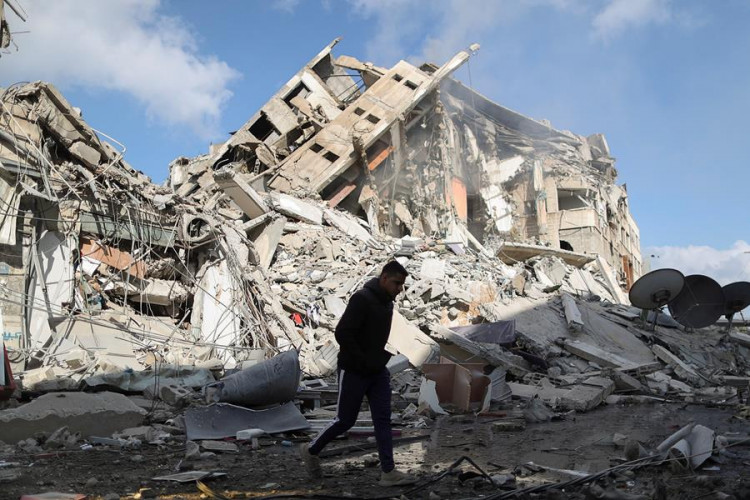At least 20 people lost their lives and 155 were wounded in Gaza as they awaited food aid, struck by what witnesses describe as tank or artillery fire. This tragic incident, confirmed by the health ministry in the Palestinian enclave, took place amid a backdrop of escalating violence that has gripped the region, further complicating efforts to provide essential humanitarian assistance to those in dire need.
Dr. Mohammad Ghrab of Al Shifa Hospital's emergency unit, overwhelmed by the surge in casualties, warned that the death toll is likely to rise as more injured individuals are brought in for medical attention. This dire situation underscores the severe challenges faced by medical teams in Gaza, who struggle with limited resources to treat the variety and magnitude of injuries presented.
The health ministry attributed this calamity to the targeting of civilians by Israeli occupation forces, a claim that has intensified the scrutiny on military actions in the area. Mahmoud Basal, a spokesman for Gaza Civil Defense, echoed these sentiments, condemning the attacks on innocent citizens awaiting relief as a breach of humanitarian norms.
In response to these allegations, Israel's military issued a statement denying any attacks on aid centers, urging media and observers to rely on credible information. This rebuttal comes amid a series of violent incidents that have marked the ongoing conflict, including previous claims by Palestinian health authorities of excessive force used against Palestinians waiting for aid.
The conflict, now in its sixth month, was initially triggered by a Hamas-led attack, leading to a prolonged and deadly exchange of hostilities that has resulted in staggering casualties. Gaza's health ministry reports over 31,000 deaths and more than 71,500 injuries, figures that highlight the devastating human cost of the war.
Amidst this turmoil, efforts to broker a ceasefire have been fraught with challenges. While Israel seeks a deal that ensures the release of hostages in exchange for Palestinian detainees, Hamas demands an end to hostilities and the withdrawal of Israeli forces as part of any truce agreement. The office of Israeli Prime Minister Benjamin Netanyahu has dismissed Hamas's latest proposal as unrealistic, further dampening hopes for a swift resolution.
The humanitarian situation in Gaza remains dire, with the U.N. warning of a looming famine that threatens a significant portion of the population. Despite international calls for increased aid access, logistical and political hurdles have hindered the delivery of much-needed relief. The arrival of aid ships offers a glimmer of hope, yet officials emphasize that maritime deliveries cannot replace the efficiency of land-based aid distribution.
As the Muslim holy month of Ramadan begins, tensions are expected to escalate, with Hamas calling for increased protests and attacks against Israel. In a separate incident underscoring the pervasive violence, an Israeli soldier was stabbed in southern Israel, with authorities neutralizing the suspected attacker.
This complex tapestry of military, political, and humanitarian issues paints a grim picture of a region in crisis, where the prospects for peace and stability remain elusive amidst the continuing cycle of violence and suffering.




